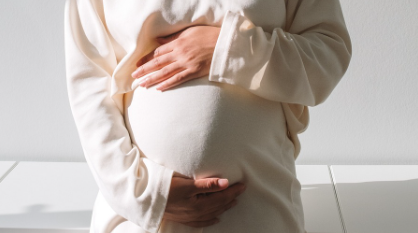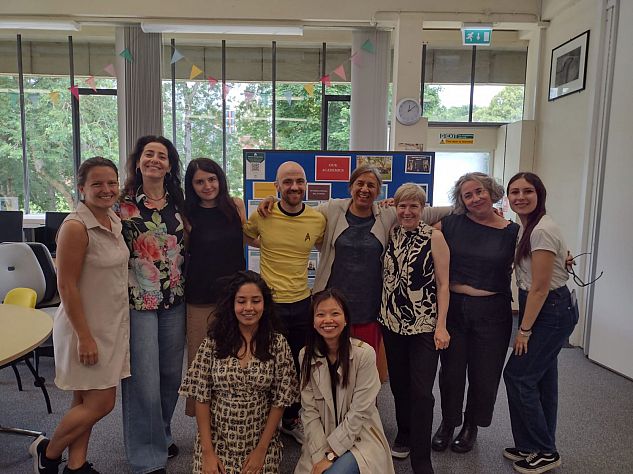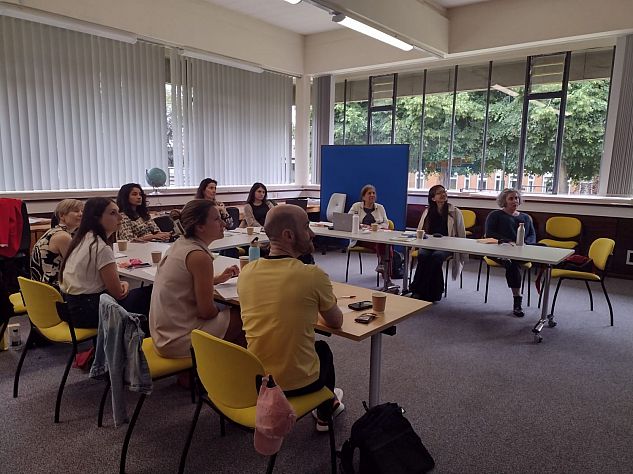CORTH Visiting PhD student, Aishwarya Chandran, provides an insightful view of the Surrogacy workshop that took place in June 2024

The Centre for Cultures of Reproduction, Technologies and Health, in collaboration with the Department of Liberal Arts, Indian Institute of Technology, Hyderabad, organised an international workshop on the 27th and 28th of June to observe its 10th anniversary. Titled ‘Beyond the Carceral: Culture, Law, and Lived Experience’, the workshop brought together scholars working on surrogacy to throw light on the various cultural and social ideas that underpin the concepts, language, and practice of surrogacy legislation.
The program was spread over four sessions, with each session focussing on different geographical regions and disciplinary locations. Researchers from disciplines of law, sociology, anthropology, health and medicine, philosophy, among others, presented their work across the two days. The Director of CORTH, Maya Unnithan, kick-started the workshop by commenting on the significance of speaking about surrogacy in a post-Roe world, where the implications of the law on people’s everyday reproductive dilemmas have become more pronounced in the contemporary moment than ever before. Co-director, Maria Moscati, in her opening comments, remarked on the need to have more comprehensive and holistic approaches to studying gender, sexuality and reproduction through interdisciplinary approaches. Anindita Majumdar, from the Indian Institute of Technology, Hyderabad, noted that collaborations across universities and countries are imperative to produce knowledge that is critical, timely, and inclusive.
On the limitations of children’s rights
Lottie Park-Morton, Senior Lecturer at the University of Gloucestershire, began her presentation by looking at how surrogacy law acts upon the regulation of parenthood in various contexts, specially through the rhetoric of the child’s best interests. Through her analysis of case studies from England and Wales, Sweden, and California, US, she concluded that a robust, consistent engagement with Child Rights Impact Assessments (CRIA) is essential in arbitrating cases over custody and parenthood in surrogacy. Professor Rachel Thomson, who chaired the session, was in agreement, opining that questions about the best interests of children disproportionately focus on biological lineage and legal parentage; but in reality, there are so many factors that contribute to what a happy childhood or a content life is. Marianna Iliadou, Lecturer, University of Sussex, asked if the discourse of reproductive rights can be used to adequately to address people’s everyday experiences with sexual and reproductive injustice, when their implementation remains wildly inconsistent.
Jayna Kothari, Senior Advocate, Supreme Court of India, specifically addressed the law’s prohibition of single women’s rights to have children through surrogacy, contending that the state seeks to delegitimise forms of family formation that lie outside the heteronorm, pushing women into marriage in order to have children. Maria Moscati intervened here to urge us to think about women’s rights in this context without essentialising what the juridical or political category of ‘woman’ itself meant. Based on the arguments made by Jayna, audience members and other panellists engaged in debate about how the protection of children and discussions on responsible parenting, the right to parent, single women’s right to parent, queer couples’ rights to parent, must not reinforce the idea that parenting is a private, nuclear family enclosed. We must think of long-term care of children that is communal, goes beyond the authority of just parental figures. must be seen outside of the individualised, privatised notion of the family, and must engage more communitarian, social models of childcare.
Governing intimate lives
Brian Tobin, Associate Professor, University of Galway, looked at the impact of surrogacy law on culture and lived experience, and how they transform each other. Ireland has historically been reluctant to permit traditional surrogacy. This, he argues, is because Irish culture historically, sees a very strong connection between the birth mother and the child. This is apparent in Ireland’s long and difficult regulations on abortion. His presentation therefore summarily argued that although the law proposes to allow surrogacy, in practice, it seeks only to discourage it or make it very difficult to access, on account of the country’s sanctification of normative maternal experiences. Rachel Thomson noted that the phrasing of mater semper in the Irish law signals how archaic and unchanging the idea of motherhood is supposed to be. In a similar vein, Elisa Baiocco, PhD scholar at the Sapienza University of Rome, looked at the Italian government’s recent proposal to make surrogacy a universal crime. She argued how this disenfranchises queer individuals and their aspirations to family-making, whose intimate lives come under disproportionate surveillance as a consequence. Skylab Sahu, Assistant Professor, Miranda House, Delhi, whose research is anchored in India, also brought in the question of legal inadequacy, arguing that a punitive framework marginalises queer individuals.
Reproducing the nation-state
Anika Konig, Substitute Professor, Freie University, Berlin, traced contemporary German regulation on assisted reproduction to histories of Nazi eugenics and nation-building, arguing that the way the German state seeks to regulate surrogacy reproduces visions of an imperialist racial past. Christina Weis, Senior Lecturer, De Montfort University, Leicester, spoke about the recent Russian bill of 2022 which prohibits surrogacy for single mothers, unmarried couples and foreigners to access surrogacy. This, she argues, reinforces the Russian constitution’s focus on the primacy of ‘traditional family values’, where only heterosexual nuclear families receive state and social legitimation. Anindita Majumdar, in her response to these presentations, urged us to ask why these anxieties about reproducing the ‘right’ kind of citizenry then create so much litigation geared towards women’s autonomy over their bodies, and to target women’s desire, or lack thereof, for children? The state’s continual redefinition of eugenics makes the goalposts for women’s reproductive autonomy harder to navigate.
Heather Jacobson, Professor, University of Austin, Texas, looked at how the state of Texas in the United States has emerged as a hub for surrogacy over the years. This, she argues, has been made possible as the state is well-known as industry-friendly due to its lack of individual and corporate income tax, its large and diverse workforce, and a relatively thriving economy. Another contextualization factor facilitating surrogacy in Texas is the historically strong Evangelical Christian base in the state and the historic lack of controversy among evangelicals around ART-use by heterosexually-married couples during the time that the surrogacy industry was establishing and growing in the state.
The session was chaired by Maya Unnithan, who noted how legal and national histories, alongside economic and cultural histories operate in complex, intersecting ways. On the one hand, if legal prohibition is meant to how legal prohibition as well as legal sanction engender precarities of different kinds, mobilising varying strands of carcerality in the everyday lives and experiences of people.
On reproductive labour
Sunhye Kim, Assistant Professor, Ehwa Women’s University, South Korea, who joined us online from Korea, focused on the meanings of reproductive labor in the transnational circuits of the ART industry in South Korea. By analyzing the embodied experiences of both intended parents and gestational surrogates when they participate in the baby-making process together, her paper examined how paid mothers (Ukrainian gestational surrogates) and unpaid mothers (Korean infertile women) perform their reproductive labor in similar and different ways when they work together to make a baby in the transnational Korean ART industry.
In the final session of the program, Prabha Kotiswaran, Professor, King’s College, London, and Madhushree Jana, post-doctoral Research Associate, King’s College, London, argued that state protections must not impinge on personal freedoms, and instead of a punitive regulatory framework, we must demand more robust protections for surrogate mothers and egg donors from a labour rights position. Aishwarya Chandran, PhD scholar at the University of Sussex, argued that the carceral turn in surrogacy legislation in India seeks to reinforce the biases that exist against the reproduction of migrant, Muslim and Dalit bodies, by pushing their livelihoods further into precarity. Priya Sharma, post-doctoral Fellow, Indian Institute of Technology, Bombay, posed similar questions, where she argued that legal deliberations over altruism and exploitation failed to account for women’s lived experiences of precarious waged work and familial obligation. The session was followed by animated discussions on the parallels between laws that regulate sex work and surrogacy, and how both of these forms of precarious, embodied work, essential to the processes of social reproduction, are implicated in the politics of governance through criminalisation.
The program helped us all think through several questions about reproductive freedom and justice, the state’s legitimisation and delegitimization of specific processes of family formation, the state’s vested interests in curtailing the reproduction of specific bodies while permitting the reproductive autonomy of certain other bodies. The presentations also urged us to think about reproductive coercion and reproductive pleasures outside of the framework of rights, where the need to expand the categories of what constitutes a family, what constitutes a woman, what constitutes individual liberty must be understood beyond legalistic frameworks, and through notions of interconnected, social living. The program was also helpful in thinking through feminist commitments towards reproductive and sexual freedoms, where the family, the neoliberal market, and the state all emerge as agents we must wrestle with and against to secure freedoms for all.



